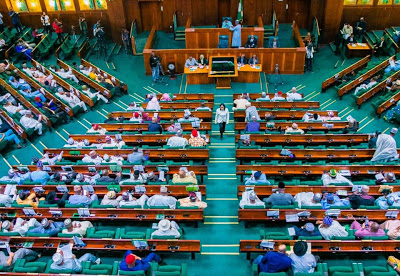Should this bill be enacted, the total number of LGAs in Nigeria will increase from 774 to 811
Details: Reps Approve Bill to Increase Lagos LGAs From 20 To 57
In a historic decision, the House of Representatives has approved a bill aimed at upgrading Lagos State’s 37 Development Area Councils to fully recognized Local Government Areas (LGAs). If enacted, this law will increase the number of LGAs in Lagos from 20 to 57, making it the state with the highest number of local governments in Nigeria.
The bill, titled “A Bill for an Act to Alter the Constitution of the Federal Republic of Nigeria, 1999 (as amended) to Accommodate the Thirty-Seven (37) Development Area Councils of Lagos State as Full-Fledged Local Government Areas, Increasing the Total Number of Local Government Areas in the Federation to Eight Hundred and Eleven (811), and for Related Matters (HB. 1498),” was among the 42 constitutional amendment bills passed on Wednesday during plenary.
Sponsored by Hon. James Abiodun Faleke (Ikeja Federal Constituency), Babajimi Benson (Ikorodu Federal Constituency), Hon. Enitan Dolapo Badru (Lagos Island I Federal Constituency), and 19 other lawmakers, the bill successfully scaled its second reading in the House under the leadership of Deputy Speaker Benjamin Kalu.
Should this bill be enacted, the total number of LGAs in Nigeria will increase from 774 to 811. Lagos will also surpass Kano and Katsina states, which currently have 44 and 34 LGAs, respectively, solidifying its status as the state with the most local governments in the country.
The proposed expansion aims to enhance governance at the grassroots level by bringing governance closer to the people and improving administrative efficiency in the megacity. Observers and political analysts have lauded the move, describing it as a step towards strengthening Lagos’ capacity to cater to its ever-growing population.
However, the bill still has to go through further legislative processes before it can be fully implemented including the Senate.
If passed into law, it will mark a significant milestone in Nigeria’s governance structure, particularly for Lagos State, as it seeks greater autonomy and improved service delivery for its residents. Read More















